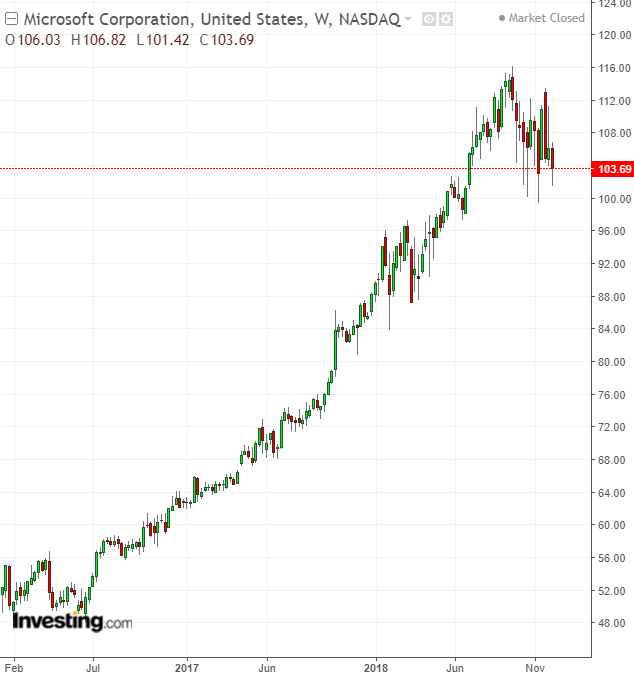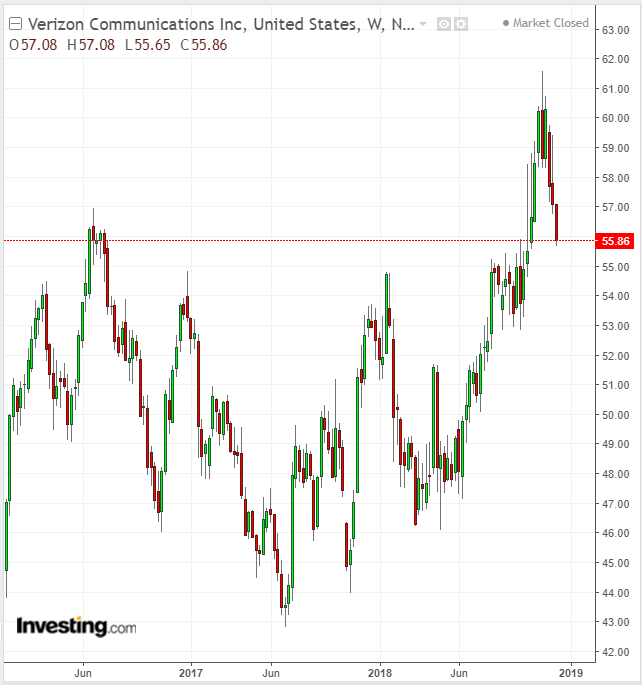When markets fall, not everyone loses. For buy-and-hold investors this is usually the perfect time to build an income portfolio for one's golden years. It's when savvy investors snag strong stocks which have been swept up in the broader panic selling.
That happens because the initial investor reaction to any major market downturn is often to tar every company with the same brush and exit all positions. Warren Buffett, the world’s most successful value investor, described the phenomenon this way:
“Be fearful when others are greedy, and be greedy when others are fearful.”
It’s difficult to predict when the current market selloff will be over, of course. There are so many unknowns, including the outcome of the US-China trade war, the future direction of Fed monetary policy and the growing risk of recession in 2019. These risks may keep investors on the sidelines in 2019 and depress some high quality stocks for the near- to medium-term.
But if want to buy-and-hold great income-producing stocks, then some opportunities are already available. Here are two dependable dividend stocks to consider now that their share prices have taken a hit in the recent market downturn, making their yields even more attractive.
1. Microsoft

For stable dividend income along with decent capital growth from the highly cyclical technology space, one of your best bets is Microsoft (NASDAQ:MSFT). Though many mistakenly consider the Redwood, Washington-based software firm a legacy tech company that built its business around Office software and the Windows operating system, the reality is more promising. The company's wide economic moat remains intact.
Microsoft continues to be the leader in the desktop and laptop operating system market with a commanding 88% share. Office, which has been transformed into a subscription service for companies that use it, continues to be a powerful driver of earnings. In the last fiscal year, these two units drove 52% of Microsoft's total sales.
Over the past few years, Microsoft very judiciously used its cash hoard to acquire companies that are at the forefront of the new digital economy. Its purchase of LinkedIn (NYSE:LNKD) in 2016, and a recent deal to buy GitHub, a web based hosting service, will fuel Microsoft's future growth, while allowing the company's dividend payout to keep growing, rewarding long-term investors.
Since 2004, when it first began paying a dividend, the company’s payout has swelled by 425%. This growth has been supported by a low payout ratio and strong underlying businesses.
With a current dividend yield of 1.74%, Microsoft's annual dividend comes to $1.84 per share. After the stock lost 10% of its value in the recent market downturn—it closed yesterday at $103.69, retreating yet further from its record high of $116.18—Microsoft's shares have become a bit more attractive. The company is well positioned to resume its upward trajectory once market volatility diminishes.
2. Verizon Communications

Telecom utilities are great income producers. No matter in which direction the economy heads, internet and wireless connections will likely to be the last items consumers will cut from their must-have lists. This predictability and stickiness guarantees seamless revenue for telecom utilities no matter the economic conditions.
Which in turn makes them valuable portfolio additions for retirees. We like Verizon Communications (NYSE:VZ) for this reason. The company has a solid track record of rewarding investors with growing dividend payouts.
Despite the challenging and fast changing environment in the telecom space, Verizon’s momentum continues, with robust subscriber growth during the first nine months of 2018. After a recent pullback—shares closed at $55.86 yesterday, down 9% from their November high of $61.58—triggered by the general market weakness, Verizon stock now offers a rich annual yield of 4.22%. As well, the company has hiked dividends during each of the last 14 calendar years.
Telecom shares may not provide hefty capital gains, particularly when compared to those delivered by high-flying, more volatile technology stocks. But the downside risks during times of distress are also limited. During the past three months, when the S&P 500 slid more than 11%, Verizon are up about 6%.
The company's strong balance sheet, growing dividend, and leading position in the 5G rollout make Verizon a solid—and comparatively safe—income choice.
